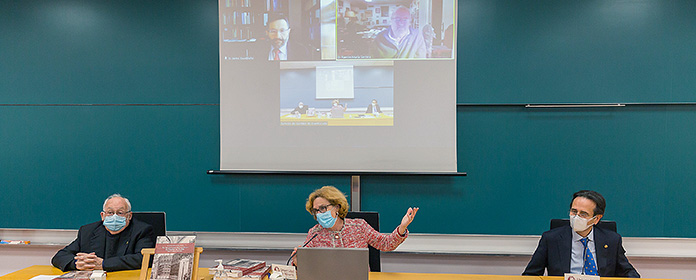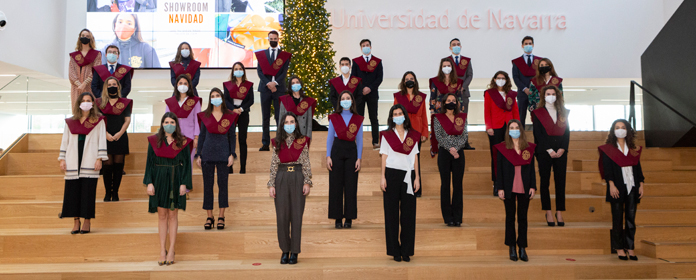En el ciberespacio no es posible desligarse totalmente de la identidad que se tiene en el mundo físico
In cyberspace, it is not possible to completely detach oneself from the identity one has in the physical world.
An expert presents at the ICS of the University of Navarra her research on how to predict Internet behavior
"Even if a person presents him/herself in cyberspace in a different way from how he/she really is, a total break in his/her identity is not possible". So said Monica Whitty, a researcher and lecturer at the University of Leicester (United Kingdom), during a seminar that she gave at the Institute for Culture and Societyresearch center Humanities and Social Sciences of the University of Navarra. The activity was organized by the ' project Emotional culture and identity', which is financed by Zurich Insuranceand the Center for Internet Studies and Digital Life of the School of Communication.
Professor Whitty presented some of the findings of project 'SuperIdentity -Examining identity in the real and cyber world', which involves a total of 15 specialists in psychology, media, engineering, forensic anthropology and law from England and the USA.
While noting that some experts argue that the Internet provides surfers with "a space to free themselves from bodily constraints," he pointed out that "the idea of Cartesian dualism does not work: our bodies do matter when we are in the virtual world, since we cannot divorce ourselves completely from ourselves.
Young people, prone to share their passwordsRegarding the project in which he participates, he indicated that one of the objectives is to detect whether the Internet can predict the behavior of certain types of individuals. "The result of this initiative," he stressed, "will be a more complete and dynamic image of who a person is.
Through interviews with study volunteers, the researchers analyze how they describe themselves in different spaces -such as social networks-, what motivates them to create certain impressions through the avatars and images they choose, or which people tend to choose more secure passwords and who are more likely to share them. For example, with respect to the latter, they have found that "young people and people who are not persistent are more likely to share their passwords," he said.





